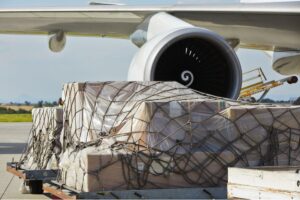
Tanzania Jobs affected by Automation & Ai
In recent years, advancements in technology, specifically automation and artificial intelligence (AI), have had a significant impact on the Tanzania job market. As machines and software become more advanced and capable, they are taking over tasks that were previously done by humans. This is leading to changes in the types of jobs available, the skills that are in demand, and the ways in which we work.
Tanzania, like many other countries, is experiencing rapid advancements in technology, particularly in the areas of automation and artificial intelligence (AI). These developments are having a significant impact on the job market, as more tasks are being automated and replaced by machines and software.
One of the most obvious ways in which automation and AI are affecting job opportunities is through the replacement of human workers with machines or software. This is particularly true in industries such as manufacturing, where robots and other forms of automation are increasingly being used to perform tasks that were previously done by humans.
As a result, many jobs that were once considered safe and secure are now at risk of being replaced by machines.
However, it is important to note that automation and AI are also creating new job opportunities. For example, companies are now hiring individuals with skills in data science, machine learning, and other emerging technologies to help them build and maintain the systems and software that are driving the automation revolution.
Additionally, many businesses are also seeing the value of human workers in areas such as customer service and sales, where personal interactions and emotional intelligence are still considered vital.
Another way in which automation and AI are changing the job market is by increasing the demand for certain types of skills.
For example, as machines take over repetitive and routine tasks, the jobs that require critical thinking, creativity, and problem-solving skills are becoming more valuable. This means that workers who have these skills will be in high demand, while those who don’t may struggle to find employment.
It is also worth mentioning that the rise of automation and AI is also having a significant impact on the way we work.
The ability of machines to perform a wide range of tasks is allowing companies to become more efficient and productive, which in turn is leading to changes in the traditional 9-to-5 workday.
Remote working, flexible hours, and the gig economy are becoming more common as companies look to take advantage of the benefits of automation and AI.
In conclusion, automation and AI are having a significant impact on the job market.
While they are taking over some jobs, they are also creating new opportunities in other areas. However, to take advantage of these opportunities, workers will need to constantly update their skills and knowledge. Additionally, the way we work is also changing, with more flexible working arrangements and a greater emphasis on self-management and self-direction. It is important for individuals, businesses, and governments to be aware of these changes and to adapt accordingly in order to ensure a bright and prosperous future of work.
Share this news
This Year’s Most Read News Stories

Zanzibar airport monopoly puts 600 jobs at risk
On September 14, 2022, the director general of ZAA issued a directive that gave Dnata Zanzibar Aviation Services Limited an exclusive access to the newly constructed Terminal III, barring other operators.Continue Reading

Tanzania Confirms Second Marburg Outbreak After WHO Chief Visit
Dar es Salaam — Tanzania’s President Samia Suluhu Hassan has declared an outbreak of Marburg virus, confirming a single case in the northwestern region of Kagera after a meeting with WHO director-general Tedros Adhanom Ghebreyesus.
The confirmation follows days of speculation about a possible outbreak in the region, after the WHO reported a number of deaths suspected to be linked to the highly infectious disease.
While Tanzania’s Ministry of Health declared last week that all suspected cases had tested negative for Marburg, the WHO called for additional testing at international reference laboratories.
“We never know when an outbreak might occur in a neighbouring nation. So we ensure infection prevention control assessments at every point of care as routine as a morning greeting at our workplaces.”Amelia Clemence, public health researcher
Subsequent laboratory tests conducted at Kagera’s Kabaile Mobile Laboratory and confirmed in Dar es Salaam identified one positive case, while 25 other suspected cases tested negative, the president told a press conference in Dodoma, in the east of the country today (Monday).
“The epicentre has now shifted to Biharamulo district of Kagera,” she told the press conference, distinguishing this outbreak from the previous one centred in Bukoba district.
Tedros said the WHO would release US$3 million from its emergencies contingency fund to support efforts to contain the outbreak.
Health authorities stepped up surveillance and deployed emergency response teams after the WHO raised the alarm about nine suspected cases in the region, including eight deaths.
The suspected cases displayed symptoms consistent with Marburg infection, including headache, high fever, diarrhoea, and haemorrhagic complications, according to the WHO’s alert to member countries on 14 January. The organisation noted a case fatality rate of 89 per cent among the suspected cases.
“We appreciate the swift attention accorded by the WHO,” Hassan said.
She said her administration immediately investigated the WHO’s alert.
“The government took several measures, including the investigation of suspected individuals and the deployment of emergency response teams,” she added.
Cross-border transmission
The emergence of this case in a region that experienced Tanzania’s first-ever Marburg outbreak in March 2023 has raised concerns about cross-border transmission, particularly following Rwanda’s recent outbreak that infected 66 people and killed 15 before being declared over in December 2024.
The situation is particularly critical given Kagera’s position as a transport hub connecting four East African nations.
Amelia Clemence, a public health researcher working in the region, says constant vigilance is required.
“We never know when an outbreak might occur in a neighbouring nation. So we ensure infection prevention control assessments at every point of care as routine as a morning greeting at our workplaces.”
The Kagera region’s ecosystem, home to fruit bats that serve as natural reservoirs for the Marburg virus, adds another layer of complexity to disease surveillance efforts.
The virus, closely related to Ebola, spreads through contact with bodily fluids and can cause severe haemorrhagic fever.
Transparency urged
Elizabeth Sanga, shadow minister of health for Tanzania’s ACT Wazalendo opposition party, says greater transparency would help guide public health measures.

Sign up for free AllAfrica Newsletters
Get the latest in African news delivered straight to your inbox
“This could have helped to guide those who are traveling to the affected region to be more vigilant and prevent the risk of further spread,” she said.
WHO regional director for Africa Matshidiso Moeti says early notification of investigation outcomes is important.
“We stand ready to support the government in its efforts to investigate and ensure that measures are in place for an effective and rapid response,” she said, noting that existing national capacities built from previous health emergencies could be quickly mobilised.
The situation coincides with leadership changes in Tanzania’s Ministry of Health, with both the chief medical officer and permanent secretary being replaced.
This piece was produced by SciDev.Net’s Sub-Saharan Africa English desk.
Source: allafrica.com

Zanzibar airport operators decry job losses over Dubai deal
Tanzania air operators say over 600 workers are set to lose their jobs after the semi-autonomous government of Zanzibar awarded a Dubai-based company exclusive rights to handle ground services at a refurbished airport.
The Tanzania Air Operators Association (Taoa) said in a statement that the contract awarded to Dnata, which is registered at the London Stock Exchange, was in breach of the law banning any company from having exclusive rights to ground-handling services at major airports.Continue Reading










